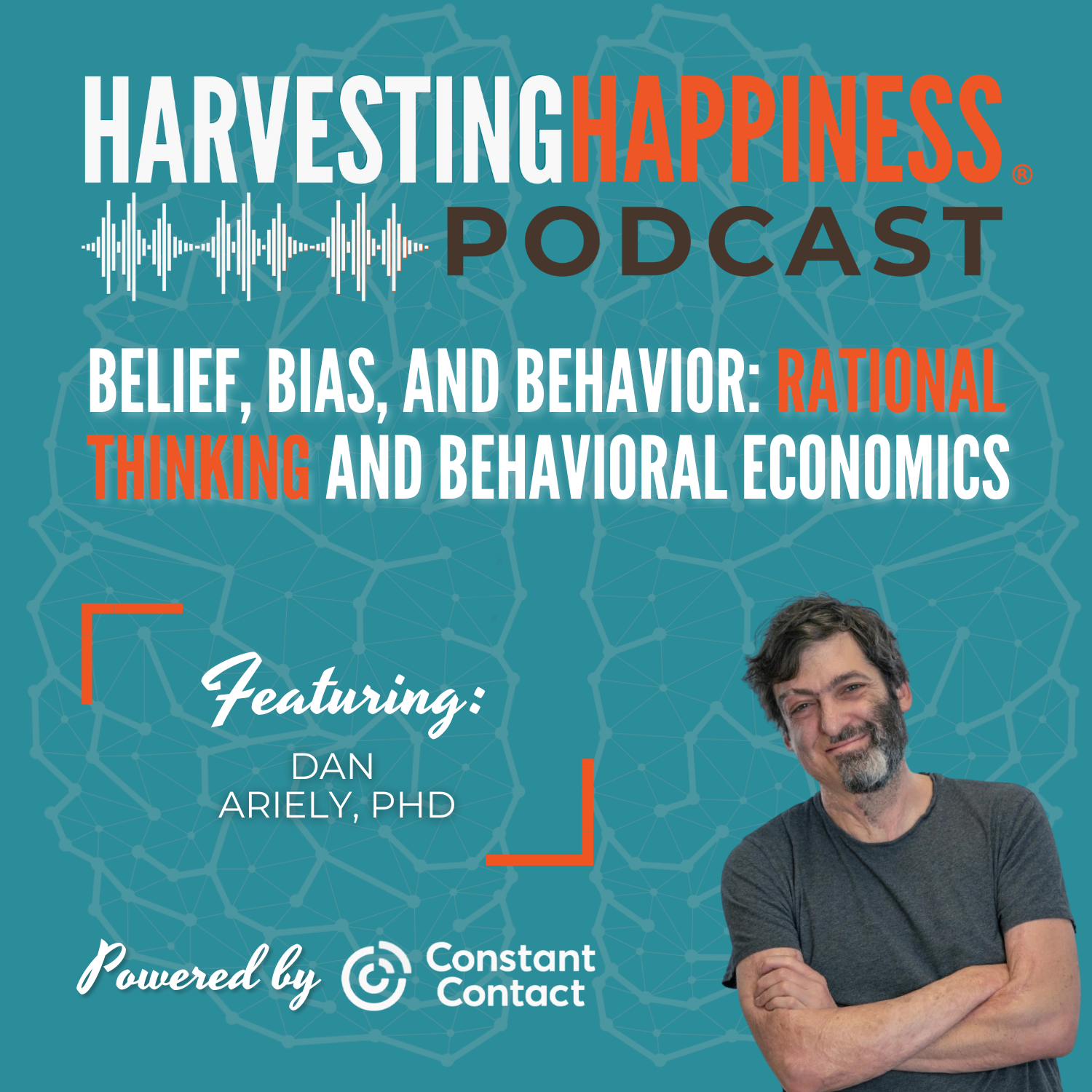
Most people who practice rational thinking are susceptible to bias, a key concept of behavioral economics. Beliefs can be swayed by our social environments—from our online networks to our family gatherings. This vulnerability arises from factors like stress, the fear of social exclusion, and our innate desire to create compelling narratives.
To discover the elements that form the funnel of misbelief and rebuild trust, Harvesting Happiness Podcast Host Lisa Cypers Kamen speaks with Dan Ariely, James B. Duke Professor of Psychology and Behavioral Economics at Duke University.
From his book Misbelief: What Makes Rational People Believe Irrational Things, Dan explains the core reasons why we believe things that aren't true and why we often have an excessive and unfounded confidence in our knowledge.
Our Proud Sponsor:
Meet Our Guest:
Dan Ariely, PhD—Behavioral Economics:
- The breeding ground for misbelief is stress. {2:16}
- Four elements that hinder rational thinking. {6:10}
- High stress increases the likelihood of bias. {10:26}
- The social and cultural aspects of behavioral economics. {18:03}
- Solutions to reduce bias rebuild trust. {24:40}
















